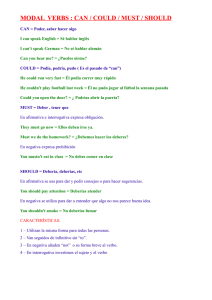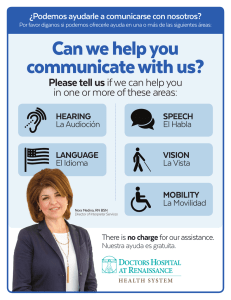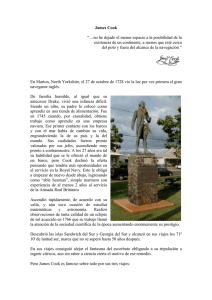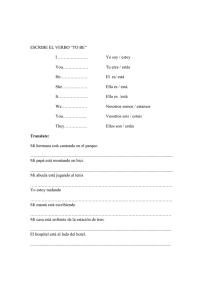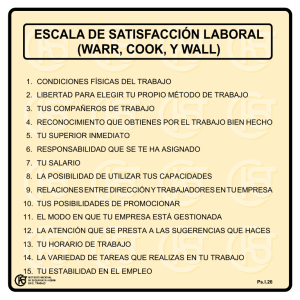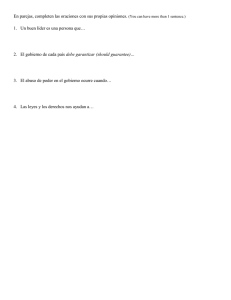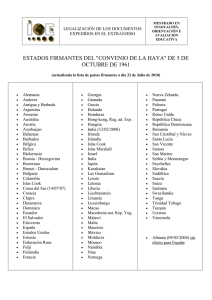Can could y be able to
Anuncio
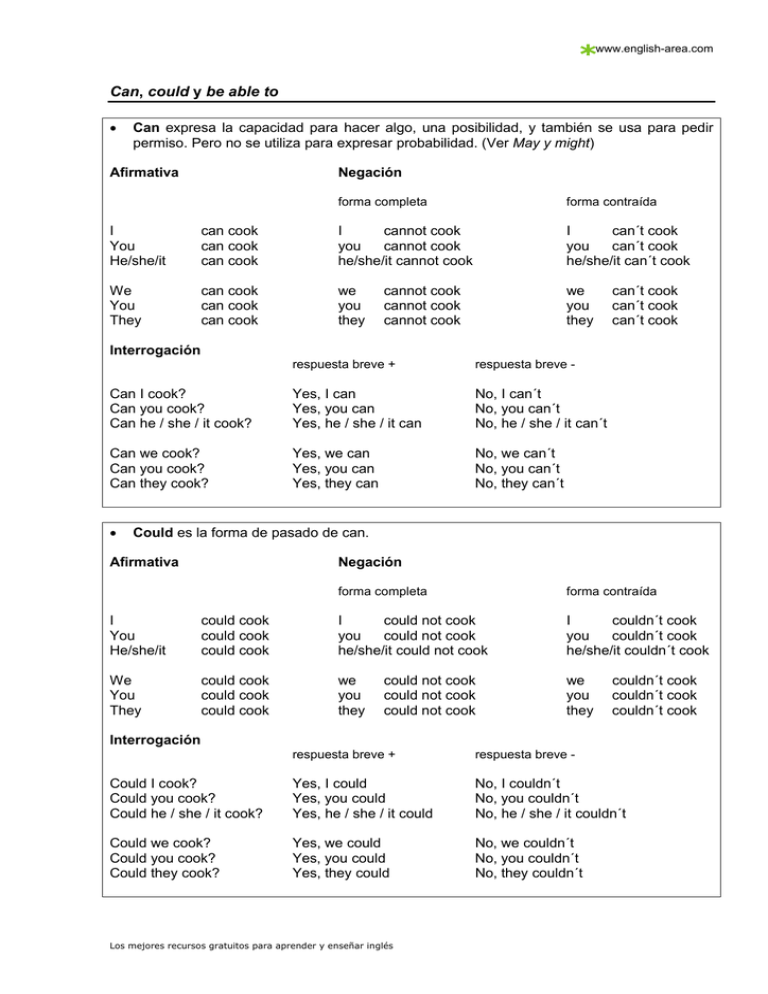
www.english-area.com Can, could y be able to • Can expresa la capacidad para hacer algo, una posibilidad, y también se usa para pedir permiso. Pero no se utiliza para expresar probabilidad. (Ver May y might) Afirmativa Negación forma completa forma contraída I You He/she/it can cook can cook can cook I cannot cook you cannot cook he/she/it cannot cook I can´t cook you can´t cook he/she/it can´t cook We You They can cook can cook can cook we you they we you they cannot cook cannot cook cannot cook can´t cook can´t cook can´t cook Interrogación respuesta breve + respuesta breve - Can I cook? Can you cook? Can he / she / it cook? Yes, I can Yes, you can Yes, he / she / it can No, I can´t No, you can´t No, he / she / it can´t Can we cook? Can you cook? Can they cook? Yes, we can Yes, you can Yes, they can No, we can´t No, you can´t No, they can´t • Could es la forma de pasado de can. Afirmativa Negación forma completa forma contraída I You He/she/it could cook could cook could cook I could not cook you could not cook he/she/it could not cook I couldn´t cook you couldn´t cook he/she/it couldn´t cook We You They could cook could cook could cook we you they we you they could not cook could not cook could not cook couldn´t cook couldn´t cook couldn´t cook Interrogación respuesta breve + respuesta breve - Could I cook? Could you cook? Could he / she / it cook? Yes, I could Yes, you could Yes, he / she / it could No, I couldn´t No, you couldn´t No, he / she / it couldn´t Could we cook? Could you cook? Could they cook? Yes, we could Yes, you could Yes, they could No, we couldn´t No, you couldn´t No, they couldn´t Los mejores recursos gratuitos para aprender y enseñar inglés www.english-area.com Ejemplos: - When I was young I could run very fast, but now I can´t - I could walk when I was ten months old. - Paul can´t cook. His meals are terrible. - I can drive, but Sarah can´t. • Be able to tiene un significado similar a can/could, pero suele utilizarse para expresar la habilidad de hacer algo de cierta dificultad (en español equivale a “ser capaz de”): I can walk very fast They were able to escape from the fire. She could draw very well at 10. When she was five, she was able to draw wonderful pictures. - También se utiliza en lugar de can en el futuro, ya que can no tiene una forma para ese tiempo: I can/could find that street → I´ll be able to find that street. - Otros casos en los que se utiliza be able to, y no can, es cuando tiene que ir seguido de un infinitivo con to o una forma en –ing, ya que can/could sólo puede ir seguido de un infinitivo sin to. We were very happy to be able to be there (no We were very happy to can to be there*) I have to be able to run the marathon (no I have to can.....*) Sujeto + verbo to be (en cualquier tiempo) + to + infinitivo Los mejores recursos gratuitos para aprender y enseñar inglés
